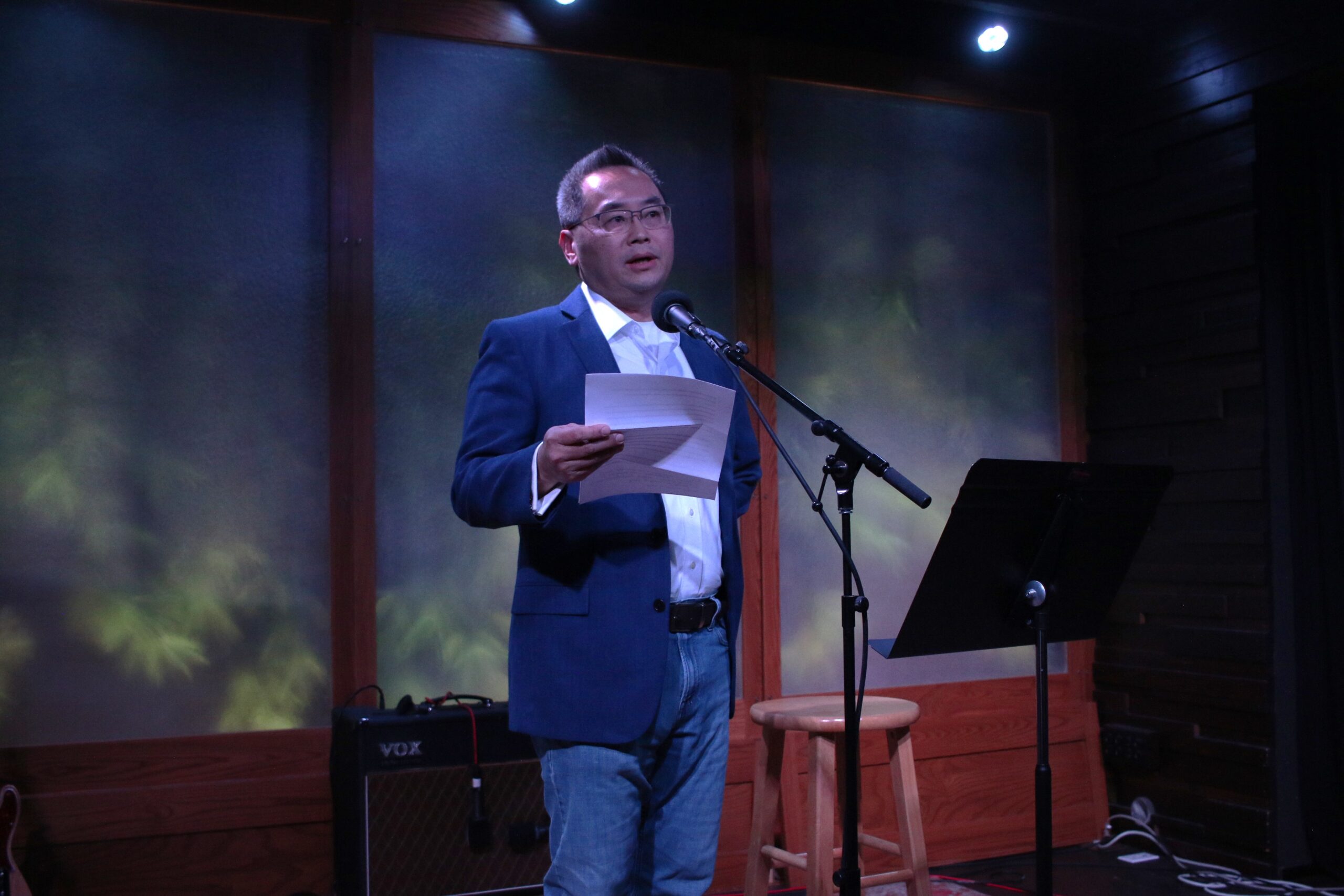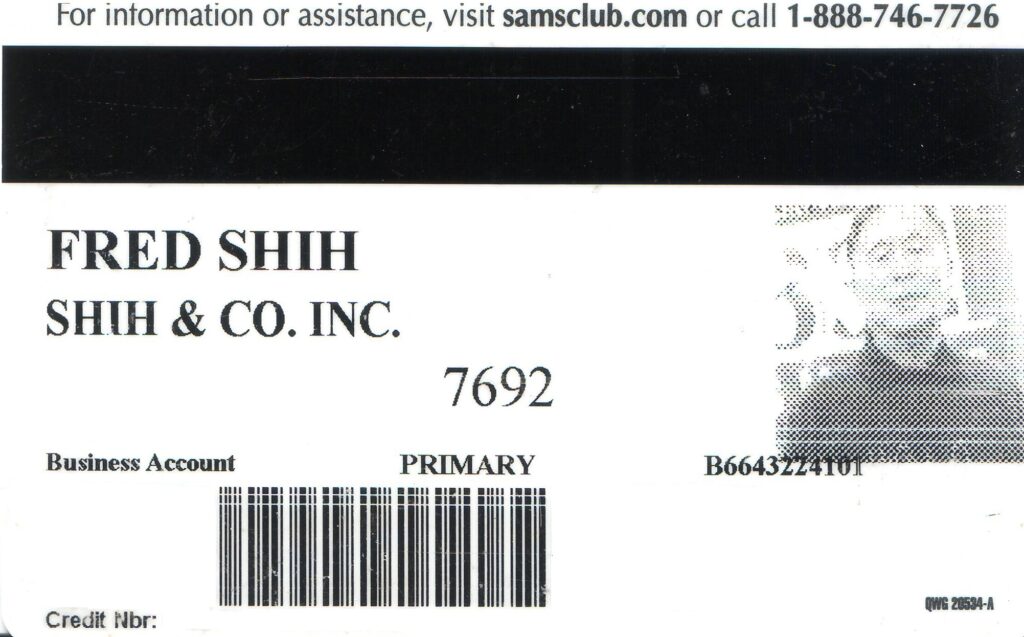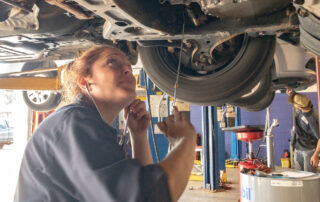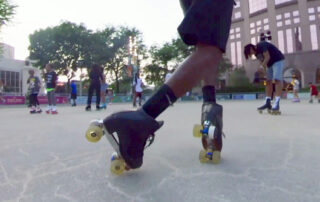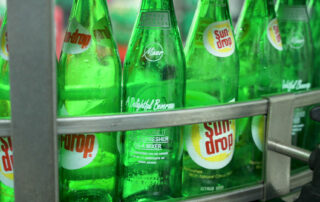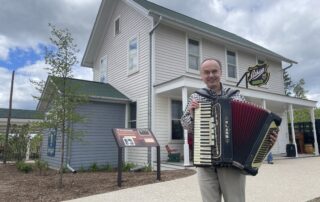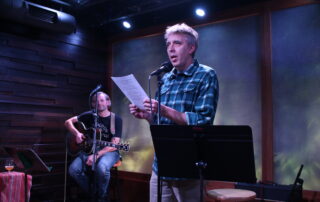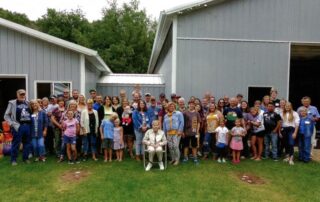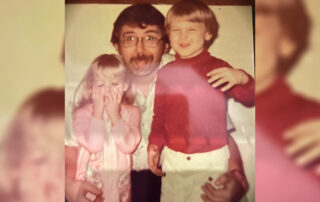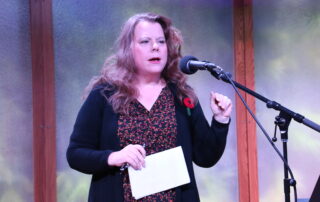Many of us have places that make us feel comfortable, at peace. Perhaps it’s a bookstore or a bar. For author and University of Wisconsin-Eau Claire English professor David Shih, it’s a place much bigger.
He shared the story, “The Warehouse Club” at a live storytelling event hosted by Wisconsin Public Radio’s “Wisconsin Life” and the Chippewa Valley Writers Guild. It was held on Nov. 14, 2024 in Eau Claire, Wisconsin at The Lakely.
==
Last November, the city where I’ve lived for the past 25 years suddenly felt a bit more like home. Eau Claire was finally getting a Costco. Don’t get me wrong: I shop locally when I can. Still I’m left to wonder how an outpost of a multinational corporation can beckon to me with such warmth and welcome. It has something to do with my father, who loved warehouse clubs and whose death five years ago occasioned the writing of my memoir, “Chinese Prodigal.”
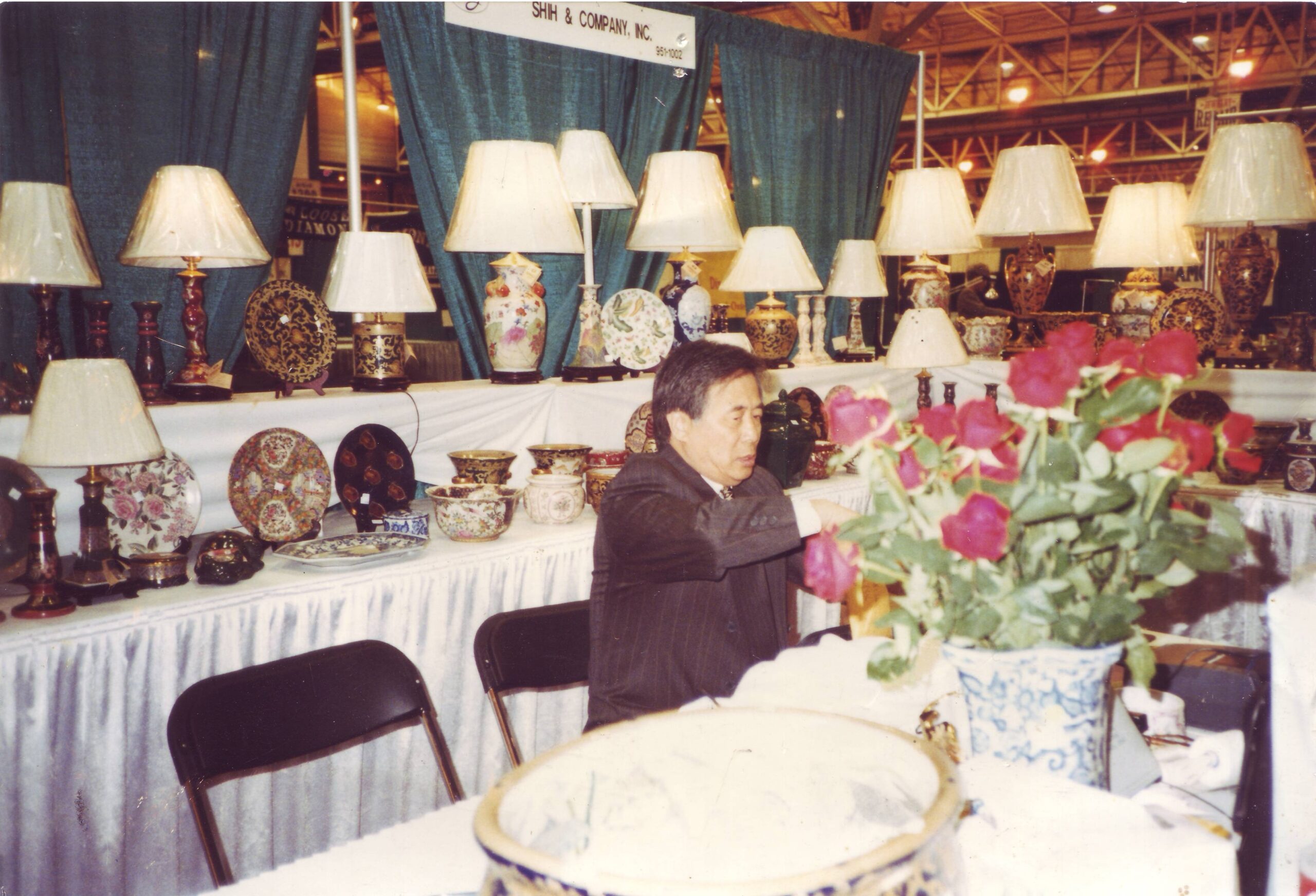
Fred Shih, writer David Shih’s father, at a booth at a trade show. Fred Shih was a small business owner and wholesaler based in Dallas, Texas. Photo by Violet Shih
In the ’80s, shopping wholesale in the north Dallas suburbs where I grew up meant Sam’s Club. Its industrial sleeves of beef jerky and cardboard slabs of canned Coke rode shotgun to my father in his commercial white cube van. A small business owner, a wholesaler too, he drove it hundreds and sometimes thousands of miles a week to trade shows across the South. In 1999, when, at age 65, he used that same cube van to move my fiancée, Robin, and me into a new home in Eau Claire, a city he’d never heard of, I think it was a great comfort to him that my new home rated a Sam’s Club at least. “David will be safe here,” I like to imagine him thinking.
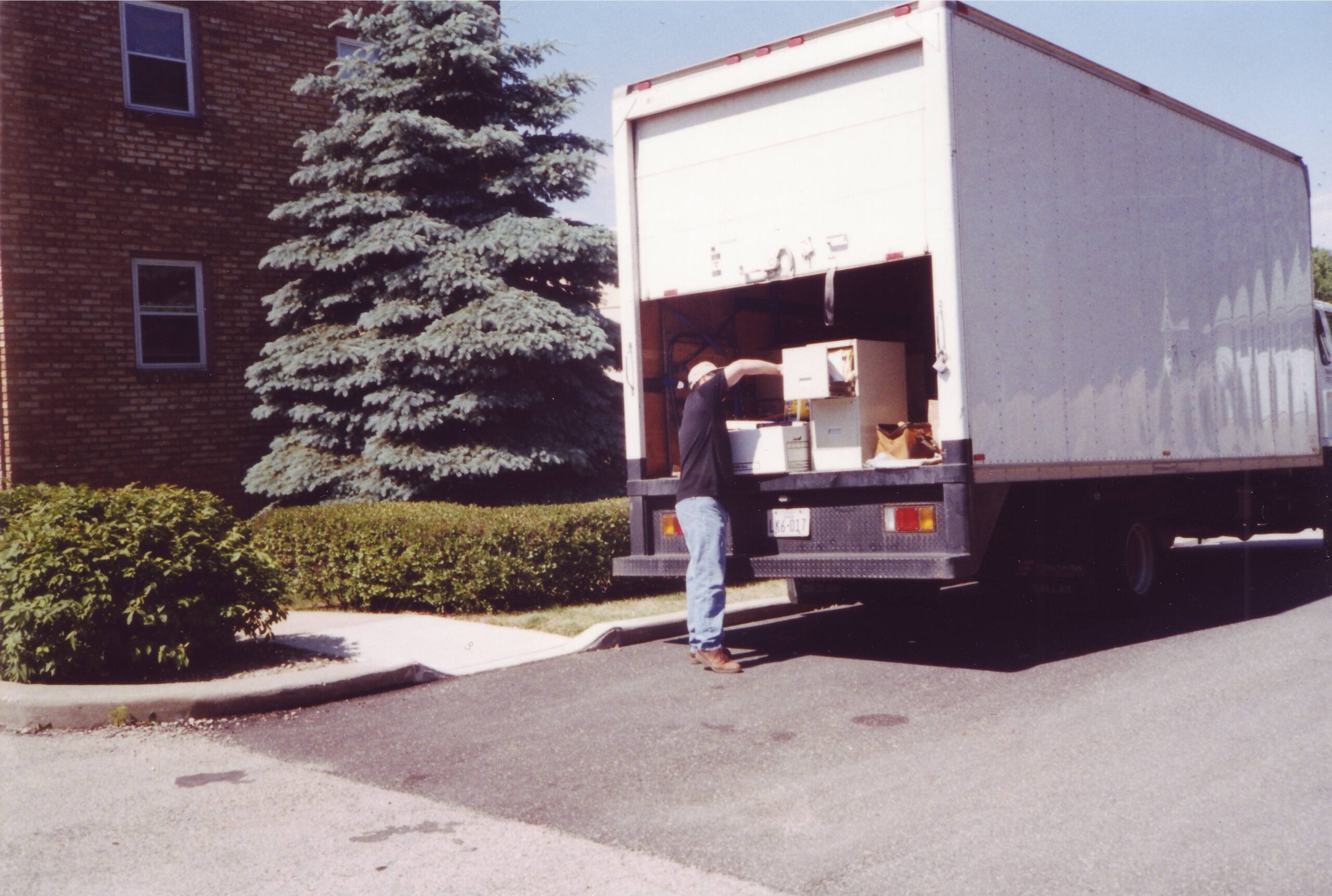
David Shih packs his apartment in Naperville, Illinois to move to Eau Claire. His father, Fred Shih, drove his business’ cube truck north from Texas so his son could use it as a moving van. Photo courtesy of Violet Shih and David Shih
In time, my parents grew to prefer Costco. It pained my parents to pay retail for anything, but Costco’s appeal must go deeper than how much we Asians like a good deal. Asians are almost twice as likely to shop there as are other racial and ethnic groups. Maybe part of it is recognizing the food from home in a way that makes you feel seen, and not tokenized — because there is a ton of it. In our Costco, I saw a pallet with hundreds of golden jars of ghee stacked as high as my chest. “They’re never going to sell all that ghee here,” I thought. Nevertheless, there it sat in all its plenty, next to the more popular baking supplies, not segregated into a specialty ethnic aisle or storefront.
But the appeal of Costco is more than being seen by it. For my father, I think cavernous warehouse clubs were like a safe space, offering an uncommon anonymity amid the crush of public life. He loved having the time and the elbow room to study something you wanted from all angles before arriving at your own decision and on your own terms. He never got comfortable speaking English with salespeople. Outside of the house, like so many immigrants, he usually just wanted to be left alone. But that didn’t mean he wanted to be alone. Or to feel that way in a crowd.
One dark winter evening, Robin and I hit up Costco just for fun. The parking lot was lit up like a truck stop but mostly empty, maybe twenty cars total, a single motorist pumping cheap gas. It was so unlike every other Costco I had been to, all of them unfailingly packed with humanity of all colors and ages. I snapped a few photos to brag on social media to my people in Texas about how good we had it up here — a brand new Costco, and a nearly empty one to boot.
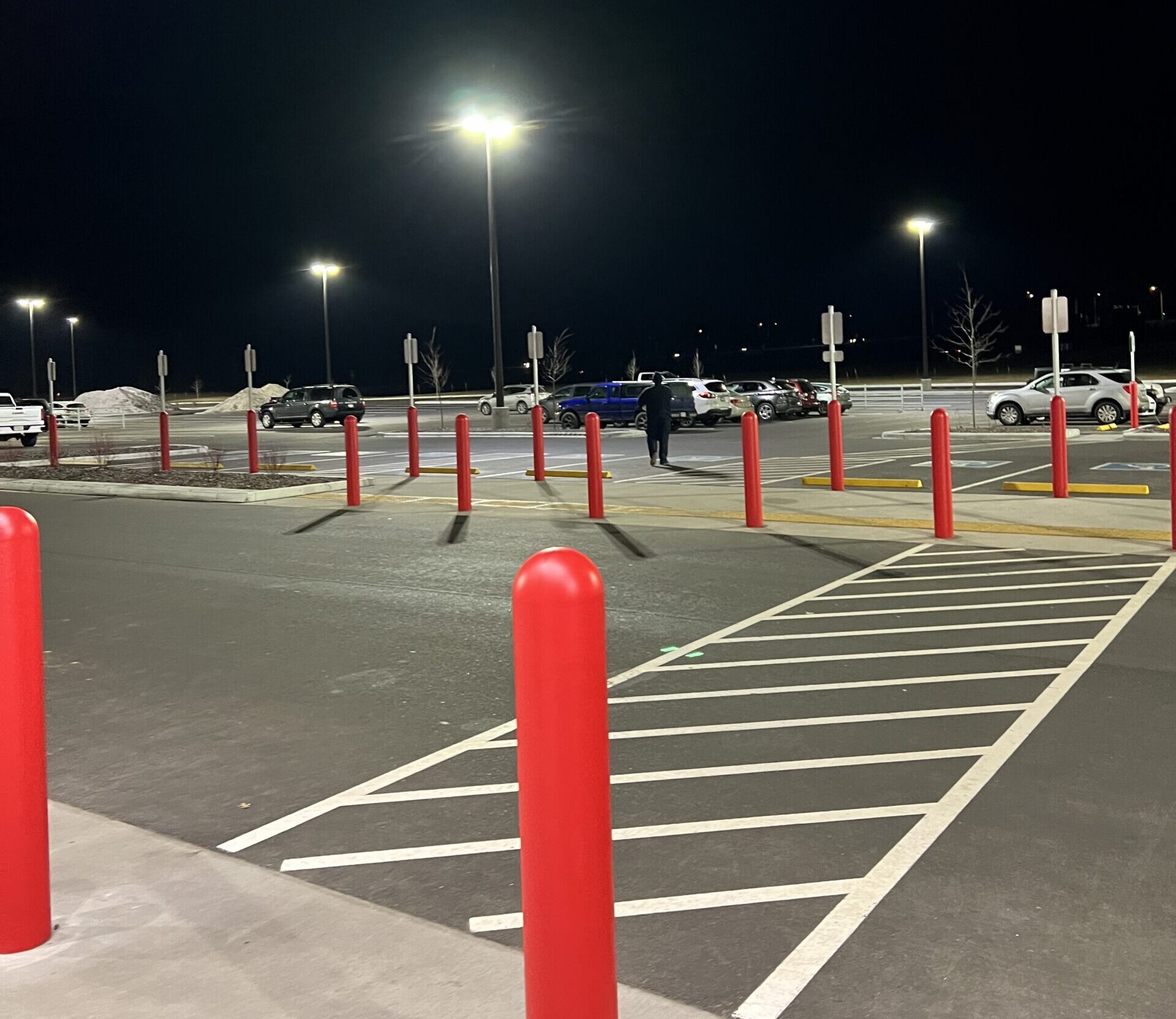
A mostly empty Costco parking lot on a winter night in Eau Claire, Wisconsin. Photo courtesy of David Shih
At that moment, I knew a couple of things to be true. One was that I wasn’t going to be the only Asian inside, even one hour before closing and in the dead of a western Wisconsin February. The other was that despite my eagerness, I couldn’t say what it was, exactly, that I needed from there.
==
After author David Shih shared his story live on stage at The Lakely, WPR “Wisconsin Life” host Maureen McCollum talked with him about the essay.
This interview has been edited for brevity and clarity.
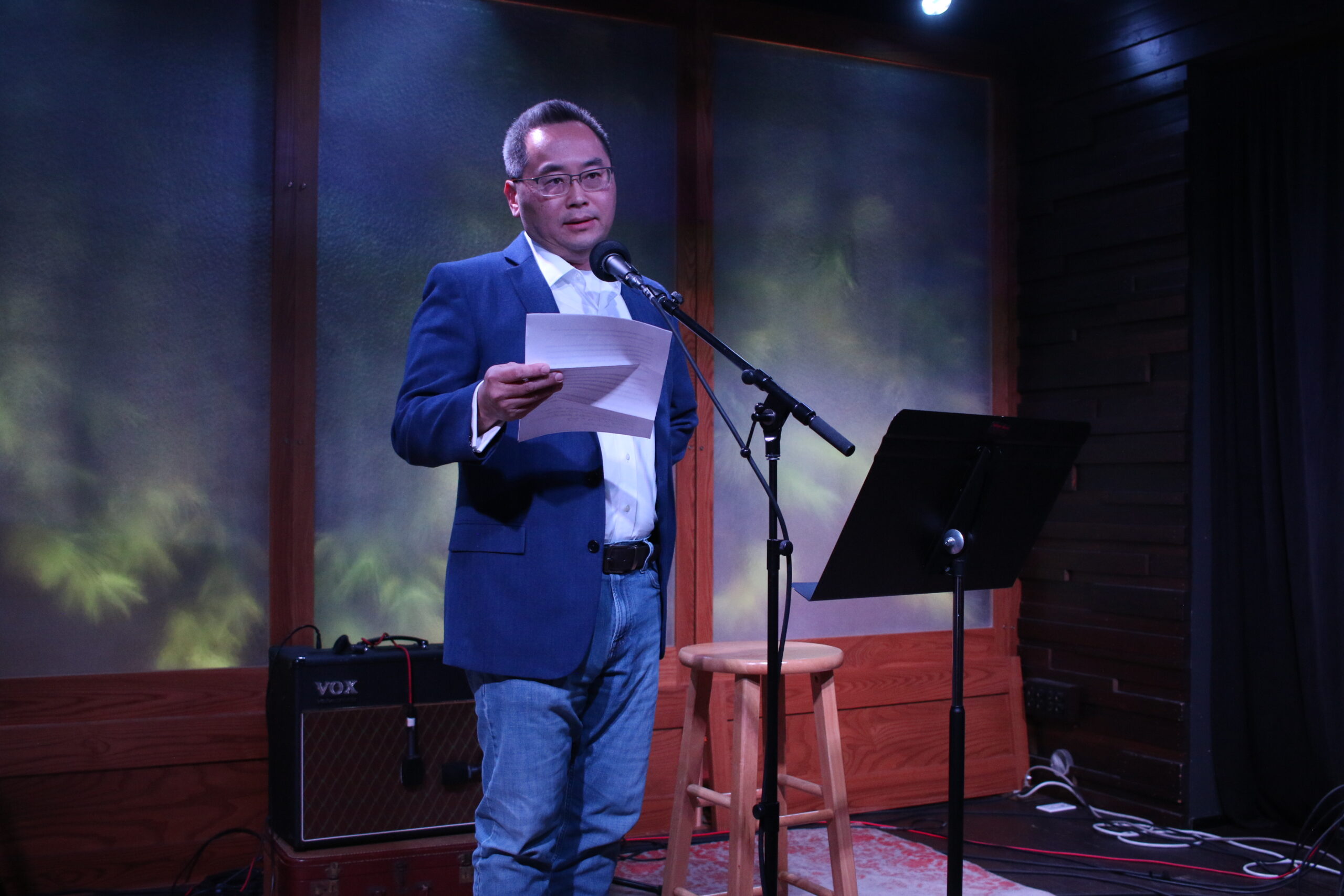
Author David Shih of Eau Claire, Wisconsin shares the story, “The Warehouse Club” on stage on Nov. 14, 2024 at The Lakely in Eau Claire. The storytelling event was hosted by WPR’s “Wisconsin Life” and the Chippewa Valley Writers Guild. Rich Kremer/WPR
Maureen McCollum: I love when writers take a look at a particular space and analyze their place in that space. You decided to talk about a warehouse club, a Costco — a place I like to get in, get out, get some samples, of course. Why did you want to think about Costco, a warehouse club and your relationship and your father’s relationship with that space?
David Shih: In my book [“Chinese Prodigal”], I wrote about how in the last years of my father’s life, he became kind of a recluse or a hermit. He kind of holed himself up in the house where I grew up. He didn’t like to go out and about. So, I knew what that house meant to him. It was a kind of protection against the world for the lack of success, I think, that he felt that he wanted to have in this life. So, there wasn’t any mystery to that house or what he liked about it.
But where the mystery was was what he liked about public life. What were those places where he felt the most comfortable and the least self-conscious, where he could be himself? It was these warehouse clubs. It was places like Home Depot, where he could take his time.
Thinking about this article, I was doing a little research and I realized that it’s a real thing. Asians just love Costco. I mean, that’s a real statistic about how often Asians patronize the store. The comedian Ali Wong says that Costco on Sunday is church for Chinese Americans. I like that because it made me feel better about my father and it made me feel that maybe he wasn’t so alone.
To hear all the Chippewa Valley writers’ stories from the live storytelling event, check out the full collection at “Wisconsin Life” Live from the Chippewa Valley.
